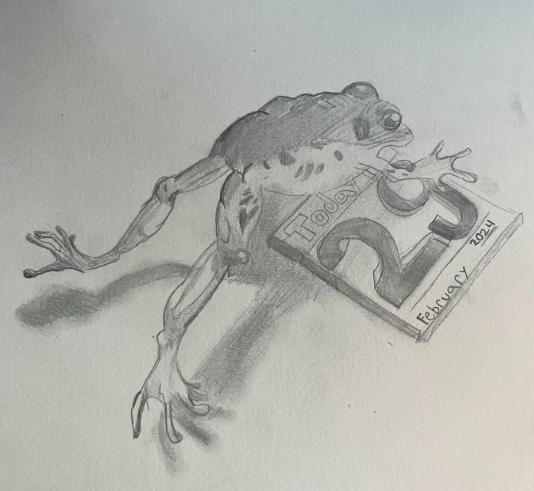Most years are recognized as “common years,” with nothing particularly notable about them. However, 2024 is a special year, adding on one extra day, February 29. But why does this happen? Here is an explanation to why every four years the calendar drags out twenty-four hours longer.
The Earth’s orbit completes one revolution around the sun in about 365 ¼ days. Consequently, since the Earth is just short of a clean 365-day revolution, those ¼ days add up to one full day every four years. A question many individuals may be wondering is simple but important: What would happen if the world did not observe leap years? Could it be possible to just ignore the decimal and carry on as usual? Junior Luci Miata pondered this question: “I think there is really no point to an extra day every four years.” In theory, ignoring the extra day would initially be fine but would eventually affect when our seasons start and end. Soon enough, the calendar would have to be changed to accommodate the weather and orbit.
The calendar is specifically created for the Earth and the seasons, leading many to question why February was the chosen month to be affected by the leap year. The reasoning behind this is connected to the history of the calendar that placed January and February as the last two months of the year. As posted on CBS News (cbsnews.com) on February 29, 2016, “[February] was the leftover month that no one really wanted to begin with.” The Romans created a calendar dating back to the 8th Century B.C., and it contained only ten months. They had very rough winters and were so disgusted with the cold weather that they tried to avoid putting the season into the calendar. However, their efforts failed, leading them to add January and February, with February ending up with fewer days. The leap day was added by Julius Caesar, but it was not the day known today. He tried to line it up according to the sun, but it still did not fully account for the ¼ revolution. Finally, in 1582, the Gregorian Calendar was created, establishing Leap Day as February 29th.
Whether the leap day is present in calendars or not, sophomore Payton Linneman does not seem to notice a difference: “Personally, I don’t even realize there is an extra day, it’s just a day to me.” Freshman Lauren Comegna agreed: “The extra day is cool; it is always something I feel like goes unnoticed.” This February, be sure to celebrate the additional 24 hours and enjoy this unique year.


















